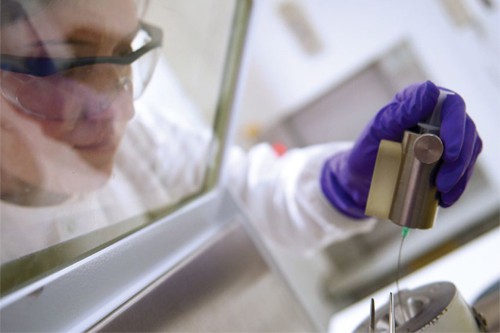
Researchers in the UK have developed a test that reveals a patient’s biological rather than chronological age, and if diseases are lurking in their future.
The team – led by researchers at King’s College London – suggest the approach could be used to identify people who could benefit from early intervention to help stave off illness in later life.
The diagnostic looks at the pattern of RNA expression in tissues – known as transcriptomics – and uses this as a biomarker for health status, effectively testing whether a patient’s tissue are biologically older or younger than their actual age.
The test was developed by comparing thousands of RNA transcription markers – the activity which are determined not only be genetic but also environmental factors – in muscle tissue from healthy but sedentary 25 and 65 year olds. Comparing the two groups allowed them to identify a core of 150 biomarkers that form a baseline for healthy aging in the test.
The scientists suggest that despite being focused on muscle tissue, the test could be used to predict when someone will die and their risk of age-related diseases such as dementia and kidney disease.
Subsequent tests revealed that patients with the highest muscle healthy ageing gene score at age 70 had better renal function, and also that the diagnostic was reliable at predicting Alzheimer’s disease.
“The shift in population demographics in the coming decades will mean that more than 1.2 billion people will be aged 65 years or older worldwide,” write the researchers, adding that 7% of them will have dementia, and two-thirds of this group will have Alzheimer’s disease.
“Consensus is that only the earliest possible intervention is likely to significantly impact on AD and thus we need to identify those at greatest risk,” they continue.Sadly however studies of the 150 age-related genes did not reveal any clues about treatments that could be developed to tackle diseases of ageing, although the scientists point out that existing therapies and lifestyle interventions could have an impact in those at higher risk.
“Our approach was novel because we first sought to define a set of genes associated with healthy ageing in ‘normal’ 65-year-old subjects, rather than gene expression associated with disease or extreme longevity,” reports the team in the journal Genome Biology.
That is important because ageing is likely to a continuous physiological process that will have a different basis to lifestyle illnesses such as diabetes or those caused by generic mutations such as cancer.
Lead researcher Prof Jamie Timmons told the BBC that plans are already afoot to deploy the test, for example to see if older people with a younger biological age are able to donate organs safely.




